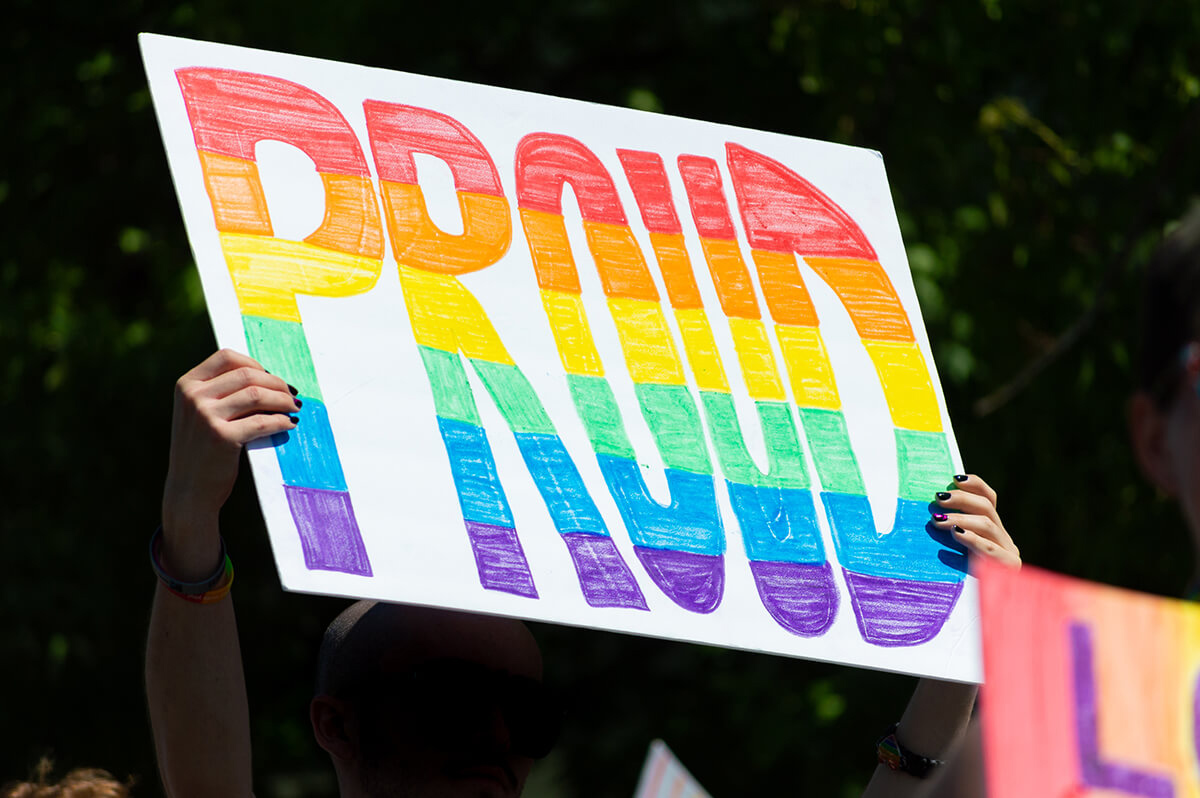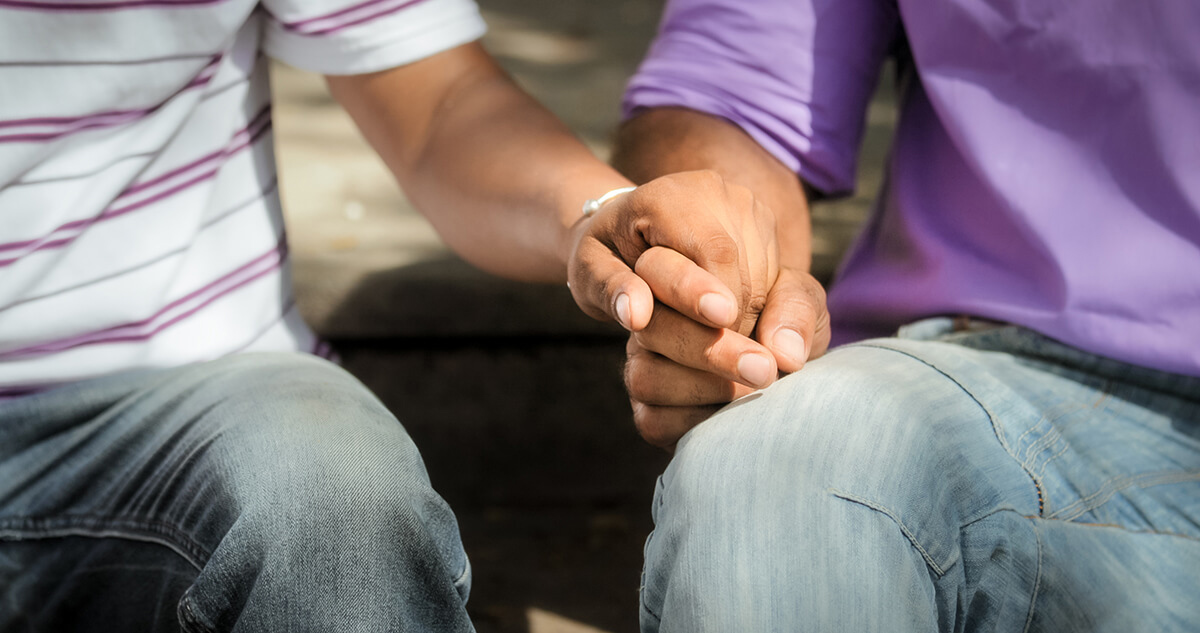 09 Sep 2021
09 Sep 2021
BY: admin
Counseling
How Confidence Issues Hold Women Back
How Confidence Issues Hold Women Back
Aggressive. Overbearing. Bossy. Controlling. All these terms have been used to bring down confident women and make them feel inferior to their male peers. In the workplace, women have been afraid to speak up for fear of stepping out of line. This often comes at the expense of receiving credit for their ideas, earning promotions they deserve and being fully recognized for their talent and skills.
In their personal life, women who struggle with confidence may routinely settle for partners who treat them poorly or even lower their expectations to avoid being rejected. Self-confidence affects everyone differently, but the unique struggle that women face can have a major impact on their life and happiness.
Why Do Women Have Low Self-Esteem?
Self-esteem affects everyone regardless of their sex or gender identity. But women have been historically plagued by greater struggles with their self-image and confidence than their male counterparts. Part of this may stem from a cultural fixation on the female body and role. Rather than being encouraged to express themselves freely and live however they want, women have been told what is “proper” or “ladylike” and encouraged to follow a linear path. In many cultures, the idea that being desirable is more important than being self-realized and happy still persists.
There is also a stigma that all women have low self-esteem, which may perpetuate a problem that doesn’t even exist. Even this belief can cause women to feel like they are less confident than they really are.
What Does Your Confidence Look Like?
Rather than grouping all women together, individual counseling approaches the person for who they are. While being a woman influences your experiences, your confidence is entirely based on what you think and feel about yourself. Factors such as your relationships, family life, upbringing and current belief systems all play a role in how confident you feel you can be.
Some women latch onto the idea of having low self-esteem and keep themselves small. This can be a useful defense mechanism for someone who has anxiety or does not know how to assert themselves. Rather than feeling the constant stress and struggle, they can shrink into the background and avoid tension.
Of course, this never leads to long-term happiness. The good news is that even a lifetime of confidence issues can be helped through therapy.
Self-Esteem Redefined
Are you tired of being told how you should feel, or what confidence is supposed to look like? You do not have to live life by anyone’s standards but your own. If that sounds too good to be true, therapy could help you realize your full potential.
Through personal counseling, you can begin to unravel your self-confidence struggles and replace them with more affirming thoughts. Building genuine confidence, but anyone can do it if they are willing to believe in themselves. Learning how to persevere through your own self-doubt is one of the greatest achievements you can discover through therapy.
Find a Denver therapist near you by contacting us at Caring Heart Counseling. We are always here to listen and help you work toward becoming the greatest version of yourself
.
 01 Aug 2021
01 Aug 2021
BY: admin
Counseling
5 Tips for Finding the Right Counselor for You
5 Tips for Finding the Right Counselor for You
Do you know the most important element of success in therapy? Your relationship with your therapist. Individual counseling cannot work if you don’t trust who you’re talking to or if a counselor makes you feel judged, embarrassed or even ashamed of your struggles.
How you feel about your therapist determines how much you’re willing to share and discuss. If you don’t feel like you can trust them or feel judged, you’re more likely to withhold your deepest thoughts, lie about your feelings or just go silent during your sessions. You deserve someone you can build a therapeutic alliance with. That is a bond that you rely on to help you reach your shared goals and work together to achieve positive outcomes.
We believe that everyone deserves to find the perfect match when it comes to counseling, so we have designed this list of five tips to help you find a therapist.
Think About Their Core Characteristics
You may have an idea in your head of what a good therapist is like. Ask yourself what qualities they have that would make you feel most comfortable. This may include:
- • Gender – Are you more at ease with a man or a woman?
- • Age – Do you want to work with someone closer to your age or more experienced?
- • Religious background – Do you want a therapist who shares your religion and may be able to integrate that into therapy?
- • Specializations – Do you want a therapist who has expertise in a certain type of therapy or treating a particular condition?
Identify Your Struggles
Why do you want to go to therapy? If you are suffering from symptoms of depression, struggle with substance abuse or need support as an LGBTQ person, there are different forms of therapy appropriate for your problems. Of course, you don’t need a clinical problem to see a counselor. Individual counseling helps people with all sorts of issues, including breakups, death and grief, insecurity, loneliness and more. What is most important is knowing exactly why you want to see a counselor; this helps you express yourself more clearly and find someone who can help you reach your goal.
Research Every Therapist
You may come across a therapist in an online directory whose biography seems promising. But before you book a session, you should Google their name and read their website and/or social media profiles to see if they are someone you would be comfortable working with.
Ask About a Consultation
A good therapist will be happy to answer questions before booking a session. Send an email or schedule a phone call to talk to a therapist or mental health clinic that interests you. Let them know what you are looking for, what you need and ask if they would be willing to answer. You should ask about their background, their therapeutic philosophy and their experience helping people with your struggles.
Don’t Settle for Less Than You Deserve
You are never forced to stay with a therapist who you are uncomfortable with. You also don’t have to remain in therapy with a counselor who you don’t feel understands you or truly helps you. While you should always bring up any challenges or issues with a therapist first, it is also okay to end the relationship and look for someone who you feel better with. Remember, therapy is for you, so be open about your needs and don’t be afraid to voice your needs.
Learn More About Therapy Today
Contact us at Caring Heart Counseling to get help finding a therapist in Denver, Colorado. We are happy to answer your questions about therapy, insurance and more. Just let us know why you’re looking for counseling, and we’ll help you take the next steps in booking a session and working with one of our therapists.
 01 Aug 2021
01 Aug 2021
BY: admin
Counseling
The Benefits of Talk Therapy
The Benefits of Talk Therapy
When entering therapy for the first time, it’s not strange to wonder what you’ll get out of it. For someone who doesn’t know what therapy is truly about, they may feel like they’re simply going to pay someone to listen to their problems or be told how to resolve them. But talk therapy, also known as individual counseling, is much more than that. It is a place for you to feel safe, understood and heard by a professional, compassionate counselor who wants to help you thrive.
Overcoming any problem, whether it’s mental illness or general life hardships, requires resilience, patience and a belief that things can get better. Metal health problems, like trauma and depression, can warp your perception and cause you to rely on self-destructive or self-defeating behaviors that keep you stuck exactly where you don’t want to be.
By going to therapy, you can experience some major benefits that will gradually help you achieve your goals and live a life that you are proud of. Below are some of the benefits of talk therapy you could experience.
Better Understanding of Emotions and Their Causes
One of the major roles of a therapist is to help their clients gain a deeper understanding of themselves. You learn how to accept your emotions, even ones you are ashamed of or pained by, and how to cope with them. Getting to the root of their cause, as well as actions they’re provoking, can help you free yourself from unhealthy patterns.
For people who are dealing with loneliness from working from home, talk therapy is a wonderful opportunity to work through the anxiety, stress and isolation in a private, supportive environment.
Greater Feeling of Self-Control
When you know how to listen to and respect yourself, you are less likely to act impulsively or do things you regret. Therapy helps you develop coping strategies and skills that make you more confident in your ability to respond healthily to your problems.
Improved Confidence and Self-Esteem
As you work through your emotions and start to see your strengths, you begin to feel more confident. Even if you have spent your entire life with low self-esteem, you are filled with amazing qualities and potential that talk therapy can help you realize. Many people who are fighting with loneliness feel as though they aren’t worth loving or being friends with; therapy helps you see the good in yourself and recognize your value.
Improved Conflict Resolution Skills
People who struggle to make and keep friends or have issues in their relationships can benefit from talk therapy. You will learn how to become less reactive, less defensive and more empathetic through active listening. You’ll also learn how to communicate your own thoughts, feelings and needs in a way that doesn’t make you feel bad about yourself.
Better Boundaries and More Rewarding Social Interactions
Boundaries help you navigate your way through the world and cultivate the right relationships for you. Many people who come to therapy have no boundaries and don’t know how to develop or assert them. Talk therapy can teach you how to make healthy boundaries and use them to form and maintain more meaningful connections.
Learn More About Talk Therapy Today
Caring Heart Counseling offers individual counseling for children, teens and adults in Denver, Colorado. Our talk therapy services can help you overcome a variety of challenges. Contact us today to learn more about how we can help. If you feel like we would be a good match, we can help you book an appointment and pair you with the best fit from our team of supportive counselors.
 30 Jun 2021
30 Jun 2021
BY: admin
Friendships / Relationships
Mental Health Therapy for Loneliness
Mental Health Therapy for Loneliness
Someone can have many friends, know people everywhere they go and even be in a loving relationship and still feel lonely from time to time. Loneliness is often a sign that we need to reconnect with ourselves, especially if we already have an established support system in real life.
Sometimes, loneliness can also be a wake-up call that we’ve outgrown our current friend group or relationships. Ongoing feelings of loneliness can also be linked to mental health conditions like depression, bipolar disorder and anxiety.
For some people, when they feel lonely, reaching out to a friend or family member helps the feeling pass. But if you struggle with feelings of loneliness most of the time and aren’t sure what to do, therapy can help.
Is There Therapy for Loneliness?
Therapy in and of itself can help combat loneliness as you are able to connect with your counselor. They listen to you, take interest in your feelings and help you begin to explore the role that loneliness has in your life and how it is affecting your well-being. In many cases, loneliness comes from self-isolation, which is a coping mechanism many people adopt when they’re suffering from other mental health symptoms.
Feeling lonely is complicated, and you may even feel guilty for your feelings if you have other people you could talk to. But loneliness has nothing to do with your love for your friends and family. Certain relationships in your life may simply be lacking in ways you need to feel fulfilled; you could also be going through a difficult period and not feel like anyone understands you.
Talk therapy explores loneliness to get to the underlying cause. How is it serving you, and what is it protecting you from? Sometimes, isolation and loneliness serve as barricades to connection when you are afraid of vulnerability or intimacy. Therapy helps you identify beliefs and behaviors that might be making your loneliness worse and replace them with healthy alternatives.
How to Cope With Loneliness
Loneliness can trigger other feelings too, including worthlessness, hopelessness and despair. For someone struggling with depression, loneliness can worsen their symptoms and even lead to thoughts of self-harm or suicide. The most important thing to do is recognize you’re lonely and acknowledge that feeling. Rather than try to suppress or ignore it, think of loneliness as a messenger that you need to connect.
Engage in meaningful activities with others; if you are trying to make friends, then you may have to start with smaller engagements. Even smiling at the barista or drinking your coffee at the cafe around others can be helpful. It’s also important to look for new opportunities to meet people. You can do this in person and through online communities.
It’s also important to address how your beliefs affect your idea of loneliness. Someone with social anxiety likely sees themself as shy and awkward, which makes them less likely to socialize with other people. If you don’t trust easily or have a hard time getting close to others, then you may have habits that make forming relationships a challenge for you.
You May Feel Lonely, But You Are Not Alone
At Caring Heart Counseling, we are always here to listen and help. Reaching out to a therapist for the first time can be scary, but we are available to answer any questions you have. Contact us today and learn more about our services or to schedule an appointment with one of our licensed therapists.
 29 Jun 2021
29 Jun 2021
BY: admin
Friendships / Relationships
Stuck in a Rut? How to Inspire Change in Your Own Life
Stuck in a Rut? How to Inspire Change in Your Own Life
Everyone feels stuck now and again, but what if every day of your life feels exactly the same? Instead of providing healthy structure and promoting discipline, your routine feels like a prison, and you can’t figure out what’s wrong, what’s missing or how to feel excited about your day-to-day life again.
Many adults struggle with a lack of inspiration, even those who have everything they think they’re “supposed to” such as a partner, children and a good job. You could also feel like you’re treading water, never getting ahead in life no matter how hard you try. Every action seems to lead you back to the same spot, which drains your motivation. Eventually, you stop trying.
Although a lack of motivation and interest can feel disheartening, it does not have to be permanent. There are several ways you can start to implement change in your life and rediscover passion, excitement and inspiration.
Expand Your Comfort Zone
Do you know why so many people quit their New Year’s Resolutions within three months? They push themselves too far to make a big change. Your comfort zone isn’t a bad place to be, but it can become stifling if you use it as a way to avoid the temporary discomfort some new experiences can bring.
But rather than forcing yourself to completely transform your life overnight, think about ways you could try new things that expand your comfort zone. For example, if you want to meet new people but consider yourself an introvert, going to bars or clubs probably won’t pay off in the long run. Instead, you could look for new opportunities that still feel comfortable for you such as joining a book club or visiting a museum.
Make Time to Have Fun
If your life is just work, sleep and repeat, then you’ll soon find yourself dreading waking up every morning. Fun isn’t just for children! Adults also need downtime to enjoy their hobbies, pursue their interests and do things solely for the sake of enjoyment. Try to dedicate at least one hour a day to something that’s entirely for your pleasure. It could be watching a documentary on Netflix, playing a video game, reading a book or anything else you enjoy.
Start Saying Yes to New Experiences
How many invitations have you turned down because you couldn’t motivate yourself to go out? The hardest part about getting out of a rut is giving ourselves the momentum we need to inspire change. It will be uncomfortable at first because you’ve grown accustomed to the confines of your current life. But a little effort and willingness go a long way; take a walk around the city without any plans, or invite a friend over for coffee. Be open to letting life surprise you!
Head Outdoors
Whether it’s a walk through the park, hiking or site-seeing, going outside is a great way to get energized. When you feel stuck in life, you might find yourself avoiding any time outdoors and just head straight to work and right back home. Going out makes you feel tired, so to avoid that exhaustion, you isolate yourself even more. This, of course, only fuels the feeling of missing out on a rewarding life and new opportunities.
Spending time in nature is proven to improve mood and increase energy. You can even look for fun local events or classes that get you outside and meeting people. You might not become best friends right away, but just seeing new faces and having small conversations can make you feel more connected with the world.
Therapy Isn’t Just for Mental Illness
If you feel stuck in life, aren’t sure how to reach your goals or wondering why you’re so unmotivated, we can help. Therapy is also a form of life coaching, and it offers an open space for you to work through your limiting beliefs, address your problems and come up with solutions that work for you.
Contact us at Caring Heart Counseling today if you would like to learn more about our services. We would be happy to schedule an appointment with one of our Denver, CO therapists at your earliest convenience.
 28 May 2021
28 May 2021
BY: admin
Friendships / Relationships
10 Summer Outdoor Activities in and around Denver
5 Strengths Unique to the LGBTQ Community
The Mile High City is a dream for outdoor enthusiasts, and summer is the perfect time to head out and enjoy all the amazing scenery and fresh air. Spending time outside is wonderful for your mental health; in addition to immersing yourself in nature, you can also get some physical exercise that promotes greater mood stability, better memory and promotes positive emotions.
Read on to discover 10 outdoor activities to do in and around Denver, Colorado, this summer.
Go Kayaking
Denver is close to plenty of incredible rivers and breathtaking lakes. Kayaking through the Colorado River is an amazing experience that you’ll never forget. Look for a kayaking tour or class that can get you acquainted with the equipment and process. You might even make some new friends along the way!
Walk City Park’s Mile High Trail
The Mile High Trail loops around City Park for a scenic 3.2-miles trek that’s perfect for passing a sunny afternoon. Along the way, you’ll pass the Denver Zoo, Denver Museum and enjoy a view of the city as well as glimpses of Ferril Lake. Stop by and appreciate the ducks and geese, or bring your pooch along for a relaxing stroll.
Shred It Up at Denver SkatePark
For the extreme sports fans, skateboarding at the Denver Skate Park can be an awesome way to get outside and return to a simpler time when all you had to worry about was when you could skate again with your friends. Don’t forget your helmet! And if you’re not a skater/bmx-er/trick-scooter person, go just to watch! Super fun.
Appreciate Wildlife at Denver Zoo
The Denver Zoo is home to more than 3,000 wild animals across a sprawling 84-acre campus. The nonprofit organization is passionate about educating the public about wildlife conservation through their animal ambassadors. There are always fun events taking place throughout the year, but even a regular day at the Denver Zoo is a treat.
Bike or Hike Your Way Through Red Rocks Park
Red Rocks Park is home to an open-air amphitheater, but it also boasts two hiking trails that are perfect for taking in some of Denver’s best natural scenery. The park is situated between the Great Plains and Rocky Mountains, so you’ll want to bring your camera to snap some amazing scenery shots.
Visit the National Wildlife Refuge
Fishing, wildlife drives and 20 miles of hiking trails await at the National Wildlife Refuge. Take in the amazing preserved habitat of animals such as coyotes, waterfowl, deer, bison and more. You may even spot our national bird, the Bald Eagle!
Take a Peaceful Tour of the Denver Botanic Gardens
Special events such as art exhibitions and workshops are always happening at the Denver Botanic Gardens. Stop by on one of their free days or order tickets online and enjoy the day surrounded by 24-acres of blooming flora and fauna from around the world.
Take a Thrill Ride via Zip Line
Colorado Adventure Center’s Denver zipline tour takes you sailing along the nearby mining town of Idaho Springs. This is a beginner-friendly tour with non-restrictive weight and height limits. The 5,000-foot course will take you over Clear Creek three times. You can end the day by visiting Idaho Springs or sign up for one of the center’s white water rafting courses!
Yoga in the Park
Denver’s parks are perfect for getting in touch with nature and centering your mind and body with a bit of yoga. There are free Yoga in the Park events you can book online. Just bring a mat and you’re good to go!
Go Horseback Riding
Visit 12 Miles Stables in Cherry Creek State Park to participate in a day of horseback riding. Horse rentals, day camps and riding lessons are available for both experienced riders and first-timers. The stables have over 3,300 acres of riding trails available for individuals and parties.
Start Summer Off Right With Therapy
If you’re working on improving your mental health this summer, we’re happy to help. contact our Colorado therapists for more information on our virtual talk therapy sessions today.
 26 May 2021
26 May 2021
BY: admin
Friendships / Relationships
What Gets in the Way of Making a Connection?
5 Strengths Unique to the LGBTQ Community
Social connection is invaluable, but it doesn’t come naturally for everyone. Even the most extroverted, well-adjusted people have to work hard to maintain friendships. But for some, even making the first move can be incredibly difficult and intimidating. Although you may struggle to get to know people or make friends, you aren’t condemned to living life alone.
With the right education, tools and help, you can begin to work through your barriers to making connections and begin finding the right people for you.
3 Reasons You Struggle to Connect With People
There are many reasons you may struggle to connect with others; below are three of the most common reasons and challenges we help clients overcome. If you feel like you can’t connect with anyone, working with a therapist may be able to help you figure out why and start making positive changes.
Social Anxiety
It’s normal to feel nervous meeting new people, but for some, the anxiety that stems from interacting with others is so severe that it prevents them from making friends, dating, speaking up for themselves at work and more. Social anxiety disorder is a treatable condition that you can overcome with time.
Signs of social anxiety disorder include:
- Racing heart, sweaty palms and shakiness when having to interact with others.
- Feelings of intense fear and anxiety when facing a social situation.
- Avoiding social settings, even once you want to go to, because you’re afraid others will reject you or make fun of you.
- Fear that others will notice how anxious you are.
- Judging yourself after a conversation and wondering what you may have said wrong, how you may have looked and ways you might have embarrassed yourself.
If you find that your social anxiety makes it difficult to speak, interact and maintain relationships, therapy can help. The first step is reaching out and talking to a counselor you feel comfortable with. They can help you work through the reasons why you feel so anxious around other people. Then, they’ll help you build confidence by practicing different strategies to manage your anxiety and communicate with others more easily.
You Fear Rejection
One of the reasons you may struggle to connect with others is that you fear they’ll judge you and not like you. In this case, you might consider yourself someone with high standards who always finds a reason to cut ties with someone before they get a chance to know and, in turn, hurt you.
You might also simply avoid people altogether because you’re afraid that they’ll dislike you if they get to know you. Fear of rejection is linked to low self-esteem, something that many people wrestle with. You can combat it by learning to recognize your own strengths and engaging in social situations that you feel comfortable in.
Low-risk social situations are key because they give you a foundation of positive interactions to build from. When you have more confidence from successful encounters, it becomes easier to confront situations with higher risks of rejection like dating and job interviews.
Social Distancing Habits
COVID isolation left millions of people quarantined indoors and fearful of interacting with anyone. Although social distancing and mask mandates are still in effect in many areas, the psychological effects of quarantine have left some people with a deep fear of engaging with others. This can make it hard to push past any anxiety and begin to interact with people. If your mind is worried about getting sick, you can’t enter social situations in a positive manner.
Physical health should never be compromised for connection, so if you’re not able to connect with others in-person due to being high-risk or unvaccinated, there are still options. Virtual clubs and online meetups give you a way to begin rebuilding social skills without putting yourself or members of your household at risk.
Therapy Can Help
Therapy for social anxiety and relationship troubles is effective. Our counselors are always here to help you begin improving your self-esteem and build new skills. Contact us today at Caring Heart Counseling with any questions. If you’re ready to book an appointment, reach out to us and we’ll be happy to arrange a time and date that works best for you.
 03 May 2021
03 May 2021
BY: admin
LGBTQ
Everything to know about LGBTQ+ Counseling
Everything to know about LGBTQ+ Counseling
Denver diversity is flourishing, and our community is becoming more accepting, supportive and celebratory of every gender identity and sexual orientation our members embody. But there is still stigma, stereotypes and difficult challenges that members of the LGBTQ+ community face on a daily basis. These experiences result in a higher prevalence of mental illness and emotional struggle compared to non-LGBTQ+ people. And, these experiences may cause you to wonder if a therapist could possibly understand your perspective.
At Caring Heart Counseling, we offer sensitive, compassionate and educated LGBTQ+ counseling for everyone. LGBTQ+ therapy addresses all of the same problems that individual counseling does, but it provides an added level of insight and understanding to create a safe space for anyone to express themselves and their unique experiences.
In this guide, we’ll help you learn everything you need to know about LGBTQ+ counseling. We’ll cover how it works, what to expect and topics we can help you address in your life. At Caring Heart Counseling, you always have an ally who wants to listen, affirm and uplift you no matter who you are or where you are on your journey.
LGBTQ+ Counseling Helps People at Every Stage of Self-Discovery
One of the biggest struggles people face when exploring their gender and sexuality is worrying whether or not they’re “enough” for a particular label. Do you have to date men and women on rotation to be a “real” bisexual? What does it mean to be non-binary, and how do you know when it’s the right time to transition to a different pronoun? Does being gay mean you can’t have feelings for someone who is transgender? All of these questions and more can be addressed through counseling. We are not here to tell you what’s right or wrong, but to help you discover yourself more and build the confidence you need to lead life as the most authentic version of yourself.
Going to counseling can be so liberating as an LGBTQ+ person because you finally have a place to express all of your thoughts and feelings in a judgement-free zone. Your therapist isn’t going to force you into any label. Instead, we’re focused on helping you accept who you are in the present moment and find love for that individual. It’s the underlying being who matters. Whether you believe in souls or spirits or just consciousness, therapy helps you connect with the “you” underneath it all and become more confident in that being as you continue to explore your identity.
This can be an especially cathartic experience for people who are contemplating coming out later in life or those wrestling with trauma, needing to heal from the past before they can truly move forward into a brighter future.
It Isn’t Just for Adults
Adolescence is when most people in the LGBTQ+ community begin to confront feelings about their gender identity and sexuality. This is a natural time to begin considering where you fit in the world, who you want to become, and how you want to connect with others. For parents, having a teen come out as gay, lesbian, bisexual, queer, transgender or non-binary can be a confusing time. You may lack the words to give them the love and support you want to express; you might struggle to help them overcome their problems and insecurities.
By working with an LGBTQ-informed therapist, parents and teenagers alike can learn to navigate identity and sexuality. If you’re going to support your teen as they transition, then family counseling can also help everyone be as understanding and supportive as possible.
Many teens who identify as LBGTQ+ also struggle with mental illness, namely depression and anxiety. Therapy can help them learn to manage their symptoms and resolve them as they become more secure about themselves and who they are.
It Offers Unique Treatment for LGBTQ+ Substance Abuse
There is a higher prevalence of substance abuse in the LGBTQ+ community than any other group worldwide. Finding ways to cope with stigma, abuse and discrimination can come in many forms, and unfortunately, many of them tend to be self-destructive and harmful. In counseling, we also handle serious topics like substance abuse, self-harm and suicidal thoughts.
Beyond treating just the symptoms, we look at the underlying experiences that have influenced your mental health so far. Understanding how substance abuse affects the LGBTQ+ community and the role it plays in your life so far. In addition to substance abuse counseling and talk therapy, your therapist can also help you explore various treatment options and play an active role in your recovery.

Therapy Can Be a Safe Space for Unsupported Teens
Self-help resources allow teens to tackle many of the issues they face on their own, but they still need a supportive environment to thrive. Unfortunately, not everyone is accepting of LGBTQ+ identities. While this is definitely changing, many traditional communities and even individual families are still wrought with homophobia and transphobia. This can be devastating as someone who feels completely rejected by their parents, siblings or close relatives.
Rather than simply having to “suck it up” and deal with all the pain and heartache involved with being discriminated against, therapy can help LGBTQ teens find resources they need while also providing identity affirmation. When you’re a young person who has taken the courage to confide in your loved ones, it is heartbreaking to have your identity questioned, invalidated or flat-out rejected. Therapy can be a place to heal from that, find acceptance and shift your focus toward a brighter future filled with people who will love you for exactly who you are.
Parents Can Educate Themselves Without Fear
When your child comes out as trans or non-binary, it’s common to panic and feel at a loss for words. You may fear that asking them questions will make them feel unsupported or even offended. It’s also natural to wrestle with a sense of grief and loss over the future you envisioned for your child as you knew them. Sharing these thoughts can cause guilt, so you may be tempted to repress them. But you cannot fully support your transgender or non-binary child without first fully coming to terms with who they are.
LGBTQ+ counseling allows you to express everything you’re feeling in an open space free of judgement. As therapists, we help both individuals and their loved ones confront some of the most difficult thoughts and feelings they carry around with them on a daily basis. At the core of Caring Heart Counseling’s LGBTQ+ counseling, we have a deep sense of love and acceptance for everyone. We know that it isn’t always easy to understand or even accept someone’s identity. Most of the time, you just need space to process and skills to communicate better.
In addition to taking care of your own mental health, our therapy for parents of LGBTQ+ children provides guidance and support for major topics such as healthcare, gender reassignment and coming out to family.
Counseling Can Make You a Better Ally
If you want to support your LGBTQ friends, there are many ways you can do so, but there are also some pitfalls to avoid. Sometimes, people with the best intentions still act in a way that is considered insensitive or misplaced to their loved ones. This doesn’t have anything to do with your care or compassion; the LGBTQ experience is unique, dynamic and extremely individual. Although your friends may have commonalities with people in the community, they are still their own beings whose gender identity and sexual orientation have developed on their own.
To be the best ally possible, speaking with an educated counselor can help. You can ask questions openly without worrying about offending your friends. You can also gain valuable insight into the common mental health struggles that affect people in the LGBTQ community, which might affect your friends but are not often shared. A therapist can offer valuable tips on how to support someone with a mental illness and even offer important tips and warning signs to watch out for if you’re ever worried about someone.
It Can Help You Break Free From Perfectionism
Perfectionism in the LGBTQ+ community is rampant, and it can lead to serious problems with chronic stress, depression and anxiety. Underlying perfectionism is a fear of not being good enough or feeling like you constantly have to prove your worth to others. It’s never enough to just be “good enough; you always have to be the best. Standards that constantly reach infinitely higher leave you feeling exhausted, frustrated and unhappy. The perfectionist mindset is destructive and, ultimately, unfair to you.
As a human being, you’re allowed to make mistakes, change your opinions and grow. You’re allowed to be less than perfect. In therapy, we can address reasons why you may be a perfectionist and how perfectionism is affecting your life. Building greater self-love, acceptance and forgiveness can ultimately help you be kinder to yourself and everyone around you.
You Can Heal From Depression
People in the LGBTQ+ community are 4.5 times more likely to suffer from depression. Factors such as lack of support, discrimination, trauma and general minority stress all contribute to depression. What starts off as fear can morph into a feeling of hopelessness that clouds everything in your life.
Depression is a unique experience to everyone, and good therapy will always place your experience as an individual over your place in any community. But good therapy also recognizes that the experiences of being LGBTQ+ are unique in and of themselves, and you deserve a counselor who understands these nuances.
Together, you and a licensed counselor can talk through your feelings, explore your thoughts and find real ways to get relief from depression. It’s about so much more than simply taking medication or getting things off your chest. You need a supportive environment that helps you build upon your strengths and find sources of hope and purpose in the world.
Gender and Sexuality Anxiety Can Be Treated
LGBTQ+ people experience some form of anxiety or depression at a rate of 1.5 to 2.5 more often than the heterosexual, cis-gender population. A lack of understanding from others can often cause people to struggle in isolation because they can’t tolerate constantly having to explain themselves or validate their experiences to other people. LGBTQ+ counseling alleviates that burden and gives you freedom to express everything without having to worry about being judged or invalidated.
When you’re a child, you took in many messages that subconsciously told you the “right” way to be a man or woman. You were likely taught that there are only two genders, and the gender you have coincides with your biological sex. For decades, “gay” was used as an insult, and people’s sexuality were often the brunt of cheap drama and comedy on television. To a developing child, this can lead to harmful mental frameworks that ultimately affect how you see yourself when you grow up.
Identifying as LGBTQ+ is different to everyone, but not knowing where you exactly fit in can lead to anxiety and depression. Mental and body dysphoria create lasting psychological impacts that can make even simple acts like getting dressed feel hard and burdensome. Fear of discrimination, judgement and a general lack of support can all cause someone to struggle with their mental health. Informed counseling for LGBTQ+ people gives you the right level of care you need to start healing. Your identity itself is never the problem; it’s the perspective with which you see it. At Caring Heart Counseling, we want every person to build an image of themselves that’s rooted in acceptance and love, not perfection and expectation.
You Can Gain a Deeper Appreciation for Who You Are
The LGBTQ+ community is extremely diverse and incredibly beautiful. You are never alone. Your feelings, experiences and difficulties are all valid and, more often than not, shared by others leading similar lives. If you struggle to accept your gender, sexuality or identity, counseling can help you discover the beauty in being you. There are so many strengths in the LGBTQ community, and we are happy to help you discover them.
In addition to recognizing community-based strengths, counseling also helps you learn to recognize and appreciate your own. You bring so much to the table, and therapy is a valuable tool that can help you realize just how much you have to offer.
Denver LGBTQ Counseling for Everyone
LGBTQ+ counseling at Caring Heart is as individual as each client. We are always evolving and educating ourselves to provide the greatest level of care and understanding to everyone we work with. If you’d like to learn more or schedule a face-to-face or virtual therapy session with one of our counselors, please contact us today.
 24 Mar 2021
24 Mar 2021
BY: admin
LGBTQ
5 Strengths Unique to the LGBTQ Community
5 Strengths Unique to the LGBTQ Community
The LGBTQ community is one of, if not the most, diverse groups in the world. Being a gay, lesbian, bisexual, transgender or non-gender-conforming individual in today’s society can be overwhelming in many regards; although the world has, for the most part, become much more accepting and even impassioned about advocating for equality, there is still a tremendous amount of work that needs to be done. Beyond the political and social aspects, many teens in the LGBTQ+ network feel a pressure to quickly identify and conform to their own group’s standards and ideals.
Stigma and stereotypes persist, even among allies. Rather than embracing someone for who they are as a unique person, identity erasure may occur as a person becomes a token “gay friend” or other concept to people around them. Mental illness is still higher in the LGBTQ community than any other group, and with so many obstacles to face, Caring Heart Counseling believes it’s also important to take time to celebrate the strengths of the community.
Courage
It’s impossible not to be reminded of courage when we reflect on the efforts of protesters, advocates and and every day individuals who live their lives directly facing discrimination, ignorance and inequality. It takes immense courage to speak up and live authentically as an LGBTQ+ person. Although you may still be closeted, the fact that you carry your identity with you each day still shows incredible strength.
Self-Awareness
Coming out is not something that someone does with no forethought. It often takes years of personal exploration to fully understand, acknowledge and embrace your identity. The insight you have into your own thoughts, emotions and identity are a valuable asset that make you more empathetic toward others.
Originality
When you are always told that the “norm” is to be heterosexual and cis-gender, it can be difficult to live outside of the bubble. But people in the LGBTQ community are champions for authenticity; their bravery is embodied in their natural expression of who they are. You don’t have to be “out and proud” to still be living authentically, either. Everyone represents and expresses their individuality differently, and it’s something that the LGBTQ community embraces.
Resilience
Despite misconceptions, stereotypes, discrimination, hate crimes and so much more, the community is still thriving in the face of it all. People continually share their own stories and triumphs, spreading hope to anyone who feels trapped by their current situation.
Inclusivity
The community strives to accept anyone and everyone who identifies outside societal gender and sexuality norms. While there is still some internal division and debates, the LGBTQ community at large is incredibly diverse, inclusive and welcoming to everyone. Being able to say that you are a part of a community that takes others in where the world has failed is no small accomplishment, and it is a source of pride and strength that many hold dear.
Finding Your Strength
If you are ever struggling in your own identity or with mental health in general, please contact our Colorado therapists. We offer specialized, compassionate, person-centered therapy for people in the greater Denver LGBTQ+ community. We also provide a wide range of other services that you can review here. Please reach out to us today with any questions or to schedule a session.
 17 Mar 2021
17 Mar 2021
BY: admin
LGBTQ
Why Is Depression More Prevalent in the LGBTQ Community?
Why Is Depression More Prevalent in the LGBTQ Community?
Mental illness is more common in the LGBTQ communitites than any straight, cis-gender group. Approximately 4.5 precent of the United States population identify as gay, lesbian or bisexual, and over 39 percent have expeirneced a mental illness within the last year. In 2015, 60 percent of LGBTQ youth reported being so sad that they were no longer partaking in activities they once enjoyed. People who identify as transgender are also more likely to experience depression and attempt suicide. Why are people in the LGBTQ community experiencing depression at such a greater rate than the rest of the population?
There is no single answer, and we would never attempt to identify the true reason for an individual’s unique experience with mental health. However, there are some common experiences and themes in the lives of people who identify as LGBTQ that can lead to the development of depression. Understanding these causes can help you better understand and support a loved one or even help yourself.
Non-Supportive Family Members
LGBTQ youth who do not have family support are much more likely to experience depression, self-harm and attempt suicide; there is also a pandemic of youths being kicked out of their homes and thrust into homelessness because their parents or guardians do not accept them for who they are.
Even if someone can keep their housing, living under the same roof as people who are openly homophobic, transphobic, and/or abusive poses life-threatening risks to someone’s mental health. Depression and its accompanying feelings of hopelessness, shame, and worthlessness, can stem from a non-supportive environment.
Lack of Understanding and LGBTQ Resources
Despite the fact people are more open about mental health today, there is still limited knowledge surrounding the unique experiences, challenges, and emotions that influence an LGBTQ person’s mental health. Even doctors and therapists can be ignorant to the influences that cause their patients to experience depression. Failing to recognize the added challenges of being LGBTQ can worsen a person’s feelings of isolation.
Minority Stress
Although the community is millions strong, almost everyone who identifes as gay, lesbian, bisexual, trans, or queer has felt alone and outcasted at some point. LGBTQ people deal with constant stress and anxiety about their own safety, their future and their personal rights. It’s not something easy for a non-LGBTQ person to understand. It is exhausting trying to explain it, so most people stay quiet and suffer in silence.
People in the LGBTQ may also experience pressure as a minority to be an advocate for their group; however, taking on the role of educator is draining and can ultimately create more stress and pressure that negatively affects your mental health.
Colorado LGBTQ Counseling & Therapy
Our therapists offer care to LGBTQ teens and adults throughout Denver. We don’t believe that there is anything you need to change about yourself, only things you may need to overcome to live more authentically. Whether you feel trapped, alone or afraid, we are here to listen and help. Please contact us today to learn more and request an appointment at your earliest convenience.

